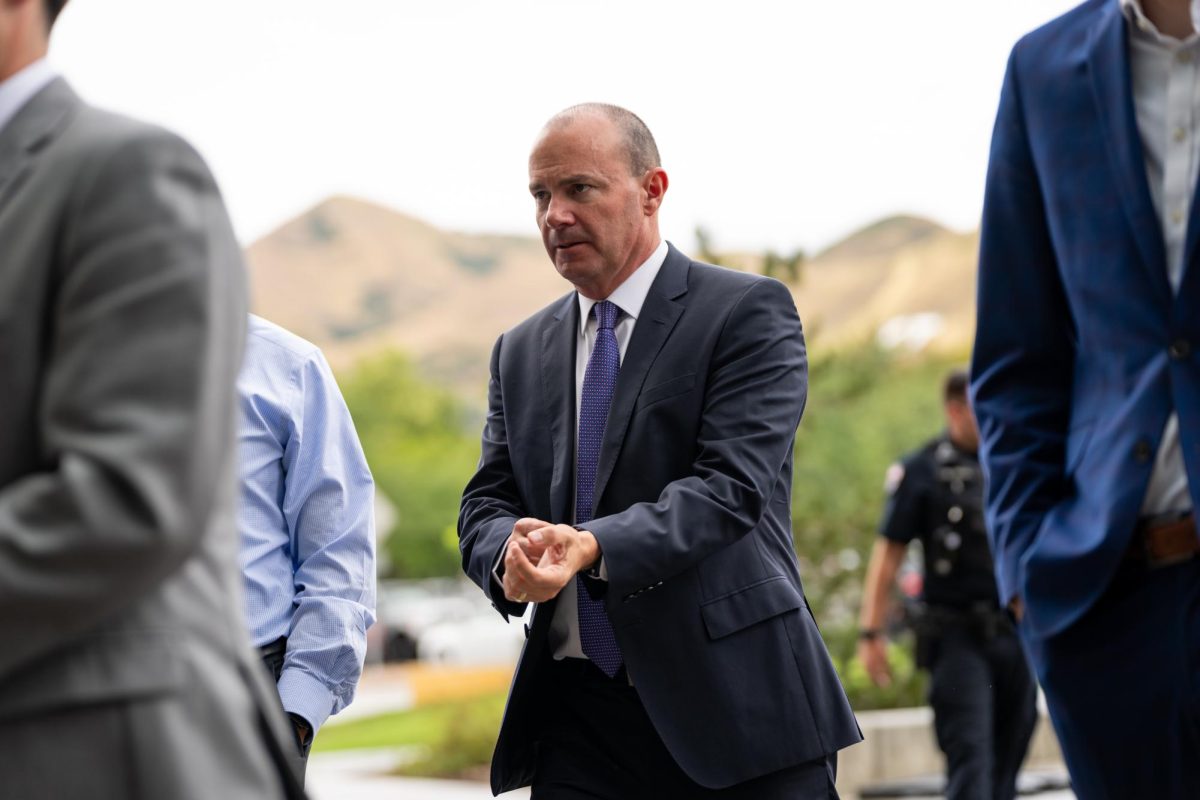If Senator Mike Lee saw a genie that allowed him to pass any bill he wanted, he would pass the Regulations from the Executive in Need of Scrutiny (REINS) Act “a thousand times out of a thousand times.”
That’s what Lee told an audience at the Sutherland Institute’s Congressional Series at the University of Utah’s Hinckley Institute of Politics. His panel was the sixth and final of this year’s series.
The executive branch’s consolidation of power, through federal agencies like the Environmental Protection Agency (EPA), was one of Lee’s enduring concerns discussed at the public forum on Monday. He touted the REINS Act as one way to tame executive power.
“The reason I would choose that one is that it would effectively restore the primacy of Congress as the lawmaking branch,” he said.
The REINS Act
The REINS Act is a proposed bill that would give Congress the final say on new rules passed by government agencies. However, the bill is limited to new rules that affect the economy by an estimated $100 million annually, cause major price increases to consumers or have “significant adverse effects” on U.S. businesses competing with foreign-based.
But, the REINS Act has received pushback from progressive groups and labor unions.
The American Federation of Labor and Congress of Industrial Organizations (AFL-CIO), a federation of labor unions representing 12.5 million workers in the U.S., sent a letter to Congress in 2023 opposing the bill.
“Under the REINS Act, politics not scientific judgment or expertise would dictate all regulatory actions. Corporate opposition and influence would swap the public’s interest and block needed protections,” wrote William Samuel, AFL-CIO’s chief lobbyist.
However, Lee contends that giving Congress a more significant say in rule-making will retain expertise.
“That’s part of the beauty of the REINS Act. The REINS act allows us to preserve [expertise], but it gives Congress the obligation, the duty to have the final say because Congress needs to be on the line,” he said.
Still, Lee thinks Congress’ ability to write and pass laws makes it the most dangerous branch of government. However, he said it’s “especially dangerous to hand over [rule-making] from the most accountable branch in government and the most dangerous … to a portion of the executive branch run by unelected, unaccountable, nameless, faceless bureaucrats.”
The Chevron Doctrine
During the panel, Lee also praised the Supreme Court’s decision to overturn the Chevron doctrine in June. However, he called it a “relatively minor change.” He said more needs to be done to usurp power from the executive branch.
The Chevron doctrine was a judicial framework that said courts should defer to a federal agency’s reasonable interpretation of a statute when that statute seems ambiguous. The 1984 decision that created it cited an agency’s technical expertise as one reason to follow this framework.
Federal courts have cited the Chevron doctrine 18,000 times. According to the Congressional Research Service, it is “unquestionably one of the foundational decisions in administrative law. “





RichLawrence • Oct 18, 2024 at 1:38 pm
We have such clean air here in Salt Lake that I am sure that we never need any federal executive branch oversight of how our state’s air quality is managed.